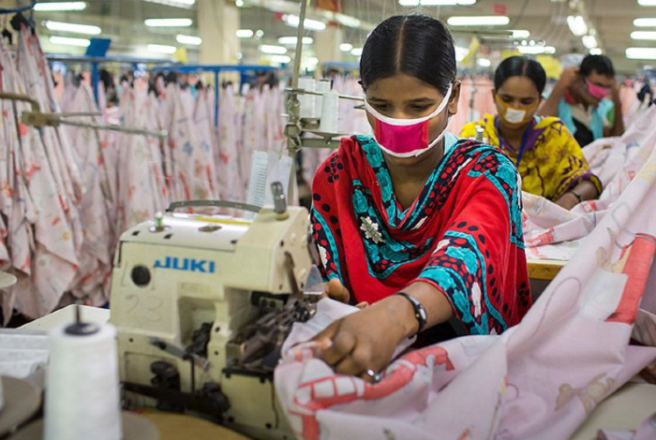
Irish people experiencing a growing concern for garment workers
The first ever law on ending violence and harassment in the working world at the International Labour Conference (ILC) in Geneva is being negotiated by governments, trade unions and employers.
ActionAid is addressing the issue, demanding that all parties agree to a strong, binding treaty which protects women and marginalised workers.
The organisation has now released the findings of a survey in order to gain awareness about the ILC conference and the extreme importance of laws to protect women.
All women (and men) should feel safe at work. The @ILO is hosting its annual International Labour Conference and ActionAid is urging attendees adopt a convention to end workplace harassment once and for all. #ILO100 #AllWomenWork #EndGBVatWork
— ActionAid Ireland (@Actionaid_Ire) June 13, 2019
Just 37 percent of Irish people who participated knew that there is zero laws a an international level to eliminate workplace gender-based violence and harassment
82 percent of those surveyed said that they care about the conditions in the factories where their clothes are made, but 65 percent claimed it's hard to know which brands are ethical.
82 percent of consumers in Ireland stated that if a clothing brand was exposed to in the media because its clothes are made in factories where women experience sexual violence and harassment, they would refuse to shop there.
Thank you to the @IrishTimes for publishing our letter this morning on the importance of protecting marginalised workers https://t.co/y0rqKBv6mZ #ILO100 #allwomenwork
— ActionAid Ireland (@Actionaid_Ire) June 13, 2019
28 per cent of Irish people believe that governments are responsible for making sure that clothes are produced in an ethical way. This would mean that, in factories, workers are paid a living wage, work in safe conditions and are free from sexual violence or harassment.
38 percent however claimed it's the employer's responsibility. The global justice organisation also gathered data from 200 garment factory workers, including 181 women, in the capital city of Bangladesh.
80 percent of the workers claimed they were subjected to sexual harassment and/or abuse at work.
ActionAid have heard shocking stories of colleagues sexually assaulted on the factory floor, women abused for not meeting targets and losing their job for being pregnant.
72 percent of garment worker respondents said they had been subjected to extreme verbal abuse at work.
73 per cent of Irish consumers wouldn’t work in a place where workers face gender-based violence, according to ActionAid, and 80 per cent would say no to working in unsafe buildings. Yet garment workers in Bangladesh face these dangerous conditions on a daily basis, and it's not headline news.
The Rana Plaza tragedy killed over 1,100 people just six years ago, but all garment workers surveyed still reported some level of concern over safety in the workplace.
90 percent stated that their jobs were impacting their own health, such as eyesight, injured hands and feet, exhaustion, depression and severe back pain.
Women garment workers face shocking levels of sexual violence and harassment. A new global treaty to end gender-based violence at work is being negotiated this week, it must be strong and protect all women and marginalised workers #ILO100 #AllWomenWork #EndGBVatWork pic.twitter.com/Mcj4ToYaH1
— ActionAid Ireland (@Actionaid_Ire) June 11, 2019
CEO of ActionAid Ireland, Siobhan McGee, said;
“The #MeToo movement has brought the issue of sexual violence and harassment at work to the fore. But, the most vulnerable, marginalised and underpaid workers cannot be left out.
"Governments and employers now have the opportunity to act by voting in favour of the first international law to tackle gender-based violence in the world of work."
“Right now, 59 countries still have no national laws against violence and harassment at work, and so a progressive, binding, global treaty is the only way to protect women and other marginalised workers," McGee continued.
“Our research shows that the majority of Irish consumers believe it is the responsibility of governments and brands to protect workers in global supply chains, such as the garment industry.
“Consumers, hit by austerity measures and rising global inequality, face tough choices when the only clothes they can afford are cheap, fast fashion that puts garment workers at risk of abuse. It’s up to brands and governments to ensure that the decision to buy ethical clothing is not only a choice the rich can make.”
One woman, Shopna, has been a garment worker for 16 years and now operates a sewing machine. She has experienced many unwanted sexual advances over the years, and witnessed incidents of assault on other women by powerful men.
Shopna unfortunately faced harassment from an inappropriate factory manager, who repeatedly asked her to stay back after work, but she said no. He violently attacked her after she came into work earlier than other workers.








